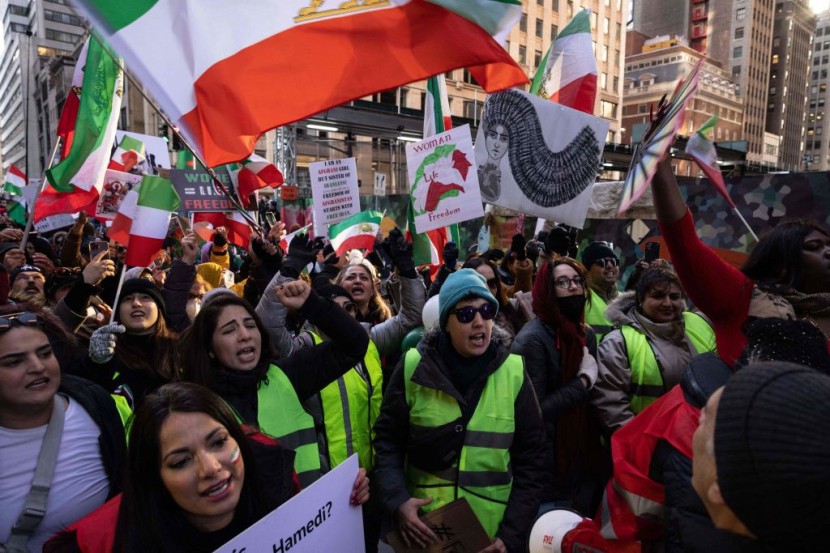
On Thursday morning, according to state media, Iran carried out the country's first known execution of a prisoner detained during months-long protests.
This major escalation sent shockwaves throughout the nation and rights groups warned that it may herald an even bloodier phase of the government's violent response to the uprising.
Iran Executes Arrested Protester
The unrest occurred in Iran following the murder of Mahsa Amini, a 22-year-old Kurdish Iranian, in the custody of the morality police on September 16. The demonstrations constitute one of the Islamic Republic's greatest difficulties since its establishment in 1979, as per NY Post.
Human Rights Activists in Iran report that at least 475 protesters have been killed, and more than 18,000 have been imprisoned in a harsh security response.
The Iranian judiciary-run news service Mizan named the demonstrator executed on Thursday as Mohsen Shekari. It stated that he had been convicted by Tehran's Revolutionary Court, which generally conducts hearings behind closed doors in which defendants are not permitted to choose their attorneys or even view the evidence against them.
According to the outlet, Shekari was accused of blocking a street and machete-attacking a member of the security forces, who required stitches. Shekari acknowledged that a friend had given him money to assault the security troops.
Mizan stated that Shekari was detained on September 25 and convicted on November 20 of "moharebeh," which is the Farsi phrase for "waging war against God" and carries the death penalty.
Shekari's attorney's appeal against the punishment was unsuccessful. State media released a video of a purported confession by Shekari, in which he appears with a bruise on his right face.
Mohsen Shekari was one of eleven believed to have been condemned to death in connection with the demonstrations, which constituted the greatest challenge to the Islamic Republic's governing clerical establishment since the 1979 revolution.
According to the report, he was prosecuted by Tehran's Revolutionary Court, which has been criticized globally by human rights organizations for conducting opaque show trials in which defendants cannot view the evidence against them.
The authorities have been employing brutal measures on the streets for over three months to crush anti-government demonstrations that have sparked unrest.
Iran Triggers Global Outrage
Human Rights Activists in Iran is a monitoring organization located in the Washington region. The Iranian Interior Ministry reported on Saturday that 200 people were murdered, including security officers.
Activists reacted with dismay to the announcement on Thursday, condemning the lack of openness in Shekari's case and fearing that it could be the first in a series of executions. Director of the Oslo-based activist group Iran Human Rights, Mahmood Amiry-Moghaddam, stated in a tweet that it "must be answered with STRONG replies, or else we would be facing daily killings of protestors."
Per NBC News, he referred to it as a "show trial without any due process" and demanded "quick practical repercussions" globally without explaining his desired actions. Political detainees are often prosecuted in revolutionary tribunals; a parallel legal system meant to protect the Iranian dictatorship, resulting in a court system stacked against demonstrators with little hope for a fair trial or due process.
Human Rights Watch and Amnesty International have repeatedly shown that false evidence is often used in trials and that detainees are frequently tortured or coerced into confessions and damning remarks. Defendants prosecuted by the Revolutionary Court are also denied the right to choose their own attorneys; Mizan stated that Shekari's court-appointed attorneys' plea to appeal his sentence was refused.
Mizan reported that Shekari informed the court that a friend offered him money to attack security troops. State media published altered videos of Shekari's claimed admissions after his death. Without providing evidence, Iran's government has attributed the current turmoil to "foreign instigators" such as the CIA.
Abolghassem Salavati, the judge who presided over Shekari's case, is dubbed "the Judge of Death" due to his record for giving down hefty jail terms and death sentences, The Washington Post via MSN reported. In 2019, the United States ordered penalties on Salavati for imposing lengthy jail terms and several death sentences on "political prisoners, human rights activists, media workers, and others attempting to practice freedom of assembly."
@YouTube








